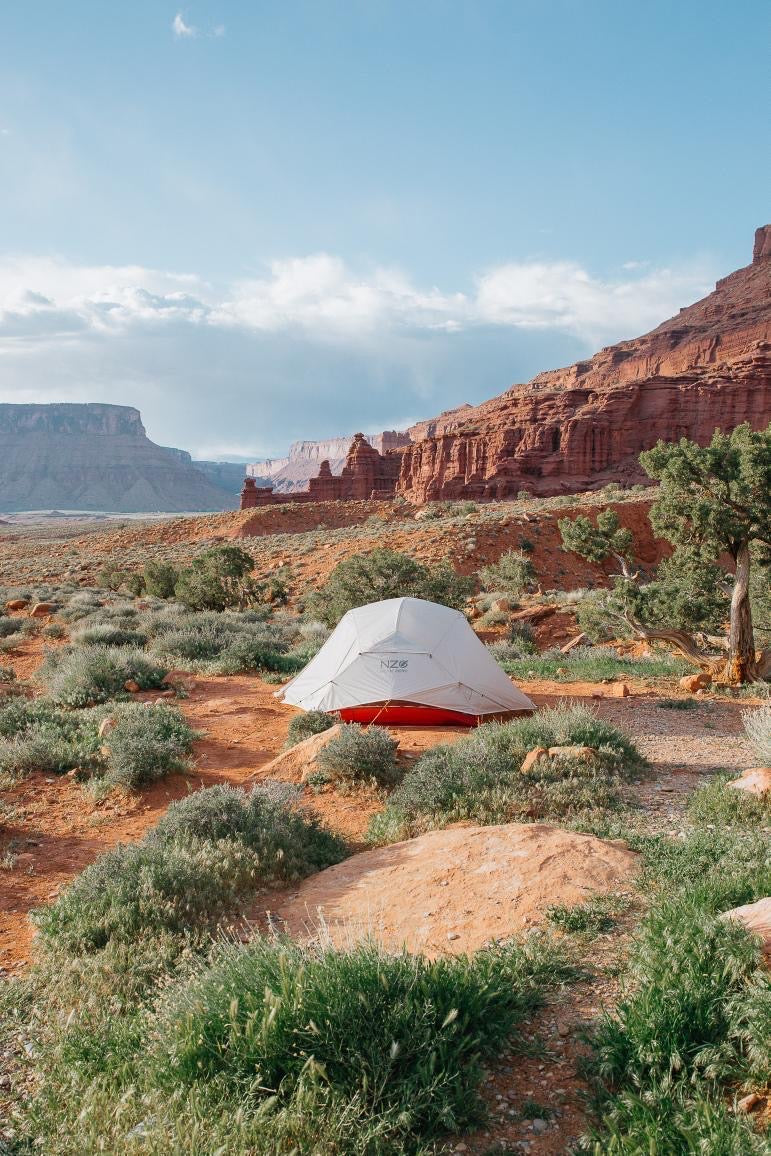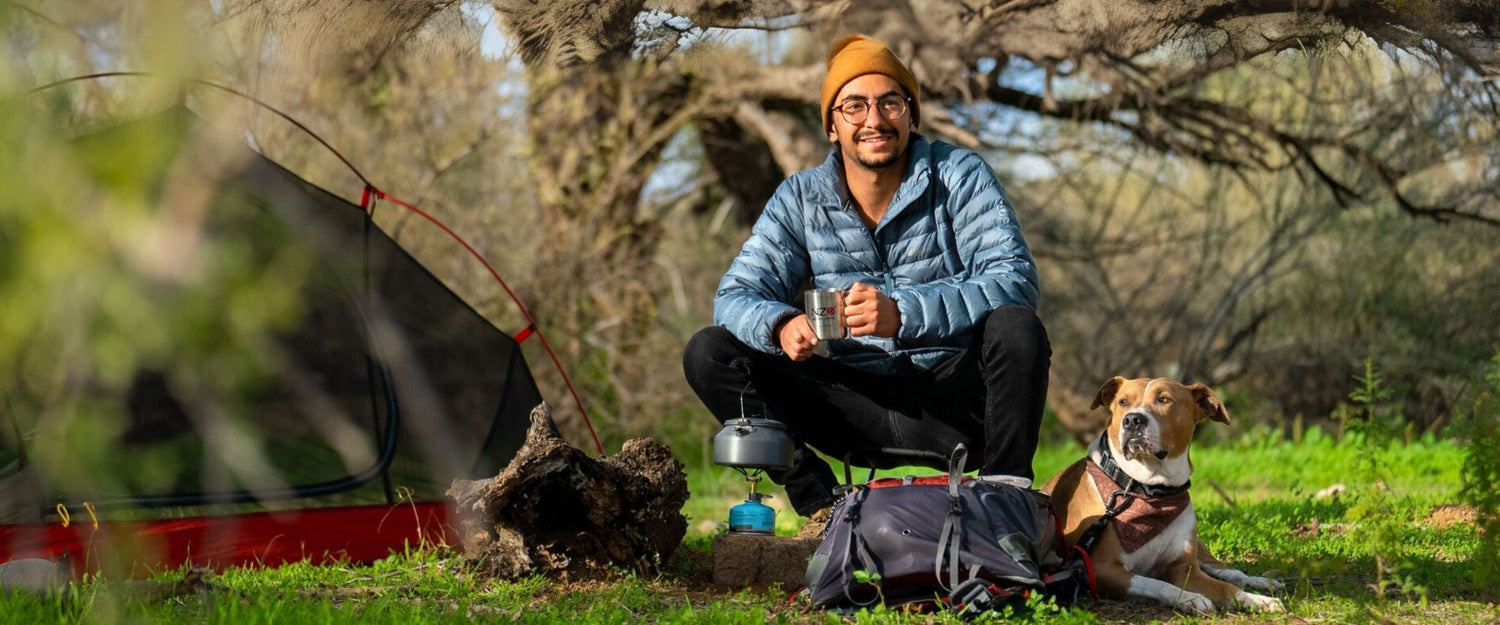
Avoid Common Camping Mistakes: Picking the Right Campsite
Have you ever reached a campsite and questioned whether you've picked the perfect spot? Or found yourself on a backpacking trip, wondering when to stop because you're unsure if you've found a comfortable place to pitch your tent? We're here to help!
A spot for comfort
The first step in choosing a good campsite is to check for rocks. Avoiding rocks ensures a comfortable night's sleep and prevents damage to your gear. After all, nobody enjoys sleeping on rocks, especially when camping or backpacking. Once you've cleared the area, assess the level of the ground. If you can't find a perfectly flat spot, decide which direction you'll want to sleep.
- Elevated feet:
- Reduce swelling
- Improve circulation
- Reduce muscle tension
- Help you sleep better
- Elevated head:
- Improve breathing
- Reduce acid reflux
- Relieve pain
Drainage
Even if you anticipate light rain, the location of your tent can significantly impact your comfort. Look for sloping areas that could cause water to pool under your tent. Digging a trench around your tent can also help keep water out, but be sure to create a channel that directs the flow away from your tent.
Avoid the water
As soothing as the sound of waves hitting the beach may be at night, rising tides can quickly turn that tranquility into a problem. If the water gets too high, it can flood your tent. You also risk waking up in a swamp with a soaked sleeping bag and drenched gear.
Isolation or conversation?
Consider your proximity to roads, other campsites, or well-traveled areas. Being nearby might mean less privacy and more noise at night, but it also offers a chance to meet new people, and the increased activity tends to keep wildlife at bay.
What is above you?
If you're sleeping under tree branches, you've picked the wrong spot. Loose branches can fall, posing a serious risk of injury or even death. Tree sap can also leave a sticky residue on your tent that's hard to clean. Additionally, assess the health of the trees around you; weak or damaged trees can be toppled by a gust of wind, potentially causing them to fall on your campsite.
Not enough around you
Setting up your tent in a windy area can be risky for you and your tent. It's best to find a spot with some natural protection from the elements to prevent your tent from blowing away and to ensure a peaceful night's sleep without the wind disturbing you.
Camp in legal spots
Do not camp in illegal spots. Be responsible and follow those guidelines.
The 200 ft rule
Choose a campsite 200 feet away from hiking trails and bodies of water, providing space for cooking and bathroom needs.
Most importantly, find a legal spot where you and your loved ones can enjoy quality time and strengthen your bonds. Remember our tips to ensure your adventure goes off without a hitch.


1 comment
No camping trip is flawless. Even the most seasoned campers slip up occasionally. What matters is that you learn from each trip and apply those lessons the next time.
https://campinggears.ph/oops-common-camping-mistakes-and-how-to-fix-them-on-the-spot/